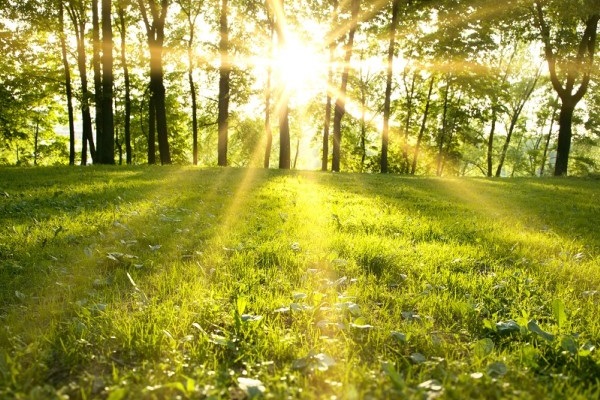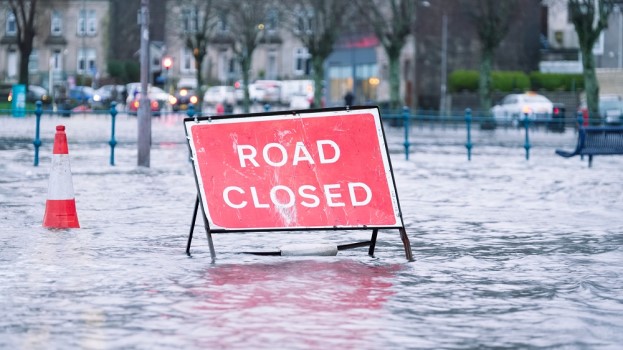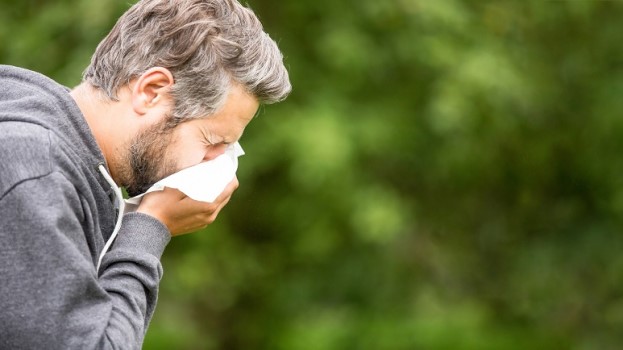How to look after your safety and wellbeing in the spring months.
Fatigue
If you're feeling fatigued, the time of year might not be helping! In spring, our bodies adjust at different rates as the clocks change and daylight extends, and we may feel more tired when we're out of sync.
Try to prioritise and respect your sleep time in your daily routine, get outside in the daylight as often and for as long as you can, and enjoy a fresh, healthy diet. 'Springtime lethargy' should only last a few weeks. See a doctor if your fatigue lasts longer in case it is a symptom of something else.
Vegetation
Vegetation can be a hazard next to the railway. Unmanaged, it could threaten operations by damaging infrastructure, for example trees falling on to overhead lines during strong winds. It can also risk staff, passenger and public safety – such as if trees fall on to a train, bus, tram, tracks, tramways or roadways, or if overgrown vegetation means workers don't have enough room to stay safe trackside, with a greater risk of slips, trips and falls.
The spring months can see vegetation growing rapidly. If you are concerned about the impact of any vegetation on safety, you can report it through internal channels or use CIRAS to raise your concerns confidentially.

Animals
Animals that have recently moved to farmers' fields near the railway again for the spring may find ways on to the railway, through broken or old fencing for example. If you see a farm animal on the tracks, use real-time channels to report this as soon as possible and alert the control centre.
Or you might find wildlife nesting in equipment, or regularly moving around in unhelpful locations on site after it wakes up and looks to partner up. Don't move or touch nests, and seek advice from a qualified environmental specialist: your health, safety and environment team at work can help, including with arranging an assessment or investigation by an external contractor if needed. It is illegal to take, damage or destroy the nest of a wild bird while it is in use or being built, and many animals are protected species, including bats, badgers, birds, dormice and great-crested newts.
Other animal-related issues could include bird or other animal droppings in the workplace posing a health risk.
CIRAS can help you if you prefer to raise your concerns about wildlife confidentially. Did you know we take environmental concerns where health and safety can be affected?
Flooding
Spring can bring heavy rain showers and storms that make flooding more likely. In some parts of Britain, warmer weather melts snow and this may also contribute to flooding.
If you think a flood is likely, get to higher ground away from the source of the flood and alert your supervisor or manager, or use your company's real-time emergency reporting channels. If you or someone else is in immediate danger, call 999. Do not drive into a flood or walk in flood water. It can be deeper than you think, fast-flowing, and hide other hazards – and it can be contaminated, especially by sewage.
More information on preparing for flooding (gov.uk)
Flood safety advice (london-fire.gov.uk)
You can also call Floodline for advice on 0345 988 1188.

Hayfever
Hayfever (seasonal rhinitis) is typically an issue for anyone affected when the pollen count is high – in warm, windy weather from about March through the summer. It can be irritating and uncomfortable. Symptoms can include itchy, red, watery eyes; sneezing and coughing; a runny nose; headaches and fatigue.
Here are some ways you might be able to ease symptoms:
- Wear wraparound sunglasses or safety glasses to stop pollen getting in your eyes.
- Buy a pollen filter for your vehicle's air vents.
- Stay indoors when you can, and keep windows shut where possible.
- Shower and change your clothes when you come indoors after being outside.
- Avoid smoke from smoking: it makes symptoms worse.
- Ask your pharmacist about treatments to help with symptoms.
For more tips, see the NHS and Allergy UK websites.

Find out more
Tags
- Health and Wellbeing
- Person's Environment
